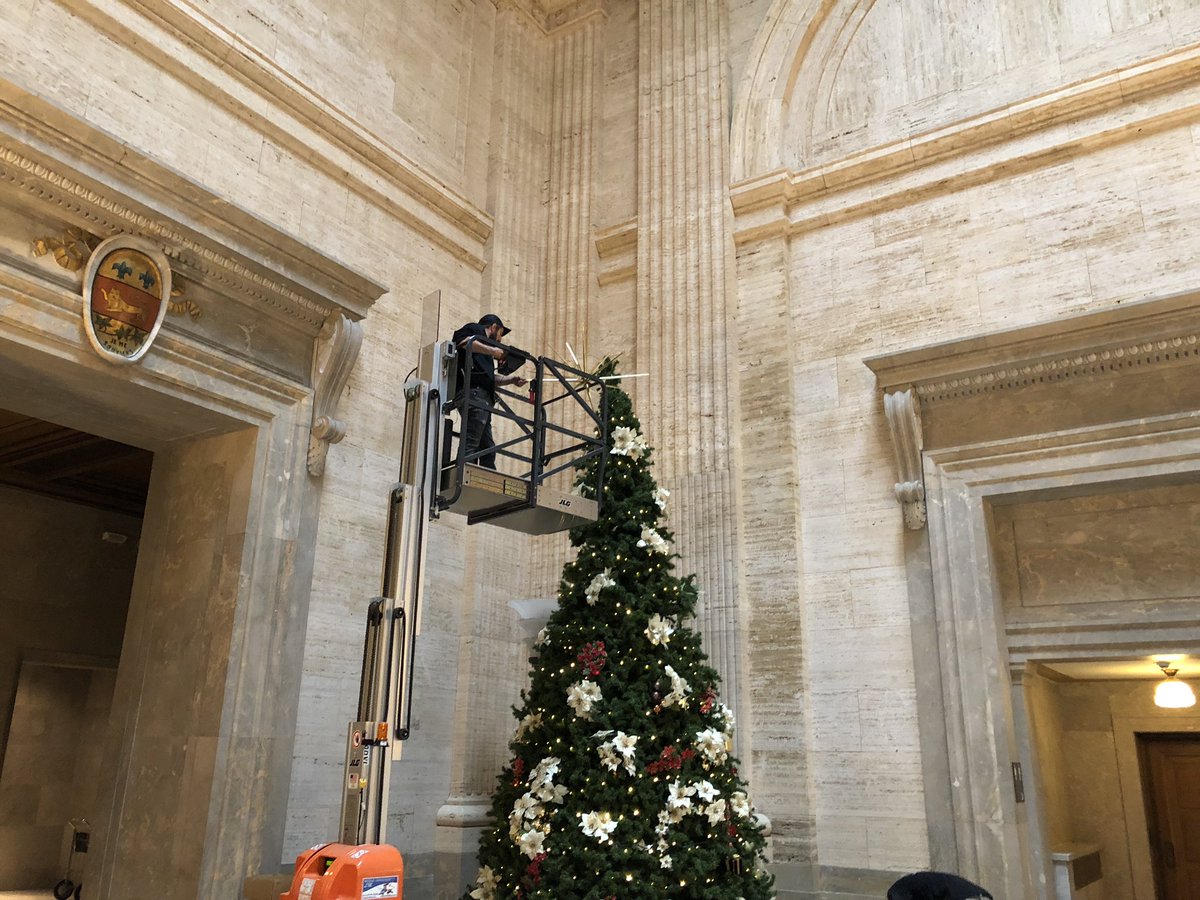Legal challenge to Quebec’s secularism law, Bill 21, is before Quebec Court of Appeal today; some background here: https://www.cbc.ca/amp/1.5221341 ">https://www.cbc.ca/amp/1.522...
Lawyers challenging substance of the law asked judge to suspend parts of it while legal arguments continued, arguing it was doing “immediate and irreparable harm” to thousands of Quebecers who wear religious symbols; judge refused to grant suspension
It’s this refusal that’s being challenegd in the court of appeal today
Large courtroom is packed; this is rare at the court of appeal; many hijabs in sight
Lawyer Catherine McKenzie is arguing Bill 21 violates “dignity and self-worth” of people who wear religious symbols
McKenzie is arguing that notwithstanding clause, which is built into the law, does not liberate Bill 21 from any legal challenge
One of the judges, acknowledging the law clearly violates religious freedom, suggests to McKenzie: “Some people might argue it is ok, at least for a certain time, to obey the will of the majority in order to preserve social peace.”
McKenzie argues the law disproportionately targets women, particularly teachers, because their religious symbols tend to be more visible
McKenzie: “Women sitting right here in this room today, women with mortgages and student loans, they can’t get a job!”
McKenzie: “The government doesn’t have a monopoly on the public interest. The public interest is not monolithic.”
McKenzie: “People’s lives are being ruined. People are being forced to leave their profession. People are being forced to leave this province.”
McKenzie: “No one has been able to come up with any example of the law being applied so far to anyone other than teachers wearing the hijab.”
McKenzie: “The fact that the government has invoked the notwithstanding clause, I don’t think that means this court can’t do anything.”
McKenzie concludes by suggesting the court, if it doesn’t choose to suspend the religious symbol provision of the law in whole, has the option to suspend it only for teachers who are disproportionately targeted by the law
Mckenzie’s co-counsel Olga Redko is now making arguments
Redko is arguing that since this legal challenge was first filed, we’ve been able to see its effects evolve: “The impact is overwhelmingly if not exclusively on women.”
Redko: “So far the only people whose religious freedoms this law has impinged are women.”
Redko argues applying law equally to men and women is so important that notwithstanding clause shouldn’t apply: “Certain rights are so fundamental that you cannot abrogate them, even using the notwithstanding clause.”
There is some clear irony here: a law that purports to enshrine the equality of men and women is being challenged because it’s been shown to disproportionately target women
Government lawyer is now making counter arguments
Government lawyer: “The legislator has decided this law is in the public interest. It is a measured law.”
One of the judges asks government lawyer if it might not be a prudent idea to suspend provisions of the law that directly affect people’s livelihoods for a few years until court challenges are exhausted; government lawyer says no
Government lawyer notes this legal challenge was filed the day after the law was passed, and that the lower court judge made the right decision not to suspend it based on the evidence available at the time
Government lawyer: “If you suspend parts of the law, it would be like you’re saying the notwithstanding clause doesn’t exist.”
Another irony: as arguments continue, workers in foyer of courthouse affix star to the top of Christmas tree
Government lawyer notes text of law doesn’t single out men or women; law applies equally to all
One judge ripostes: “There aren’t many men in the education system who are prevented from seeking a post because they wear a veil.”
Another judge: “The challenge here is which law do we protect? Bill 21 itself? The notwithstanding clause? Or people’s constitutional rights?”
Government lawyer: “The law should apply until such time as the legal questions around its constitutionality are settled. It’s as simple as that.”
Interesting part of this is that at the time lower court arguments requesting suspension of the law were made in July, the effects of the law, particularly on teachers, weren’t yet clear
In the intervening months we’ve seen prospective teachers who refused to remove religious symbols be refused jobs; some of them have affidavits that have been admitted into evidence for this proceeding
Judges now have to decide significance of those new affidavits in deciding whether to suspend parts of the law
Onenof the judges suggests the new affidavits are “clearly pertinent” in that in the lower court decision precise effects of the law on teachers weren’t yet clear
https://www.cbc.ca/news/canada/montreal/bill-21-challenge-appeal-court-1.5373597">https://www.cbc.ca/news/cana...
Government lawyer suggests evidence that law is causing irreparable and immediate harm is “fragmentary” and “not a complete portrait”
Government lawyed have wrapped arguments; lawyers for National Council of Canadian Muslims and Canadian Civil Liberties Association now get a brief chance to respond
Arguments have wrapped; it will take several weeks for panel of three judges to render a decision

 Read on Twitter
Read on Twitter


